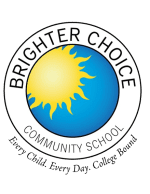School Day
School Day & Schedule
Due to COVID-19 restrictions, school runs 8:30-2:30pm EST
Please see the NYC DOE Calendar for all 2020-21 DOE school closures and holidays. Arrival doors close promptly at 8:00am. Any student arriving after the doors have closed must sign in at the main office to receive a late pass before heading to class.
Monday: 8:00am – 3:10pm
Tuesday: 8:00am – 3:10pm
Wednesday: 8:00am – 2:10pm
Thursday: 8:00am – 3:10pm
Friday: 8:00am – 3:10pm
Breakfast: 7:30am – 7:50am
Lower Grade Lunch: 10:30am – 11:20am
Upper Grade Lunch: 11:30am – 12:20pm
School Dismissal: 3:10pm
Click here for after-school hours.
Drop-Off and Pick-up Information
Please Note: When dropping off or picking up, please obey the traffic and parking signs surrounding school property.
Please ensure that any custody or emergency pick-up information is on file at the main office of BCCS. The office must be kept informed of additions or changes regarding who is authorized to pick up your scholars from school.
All Pre-K students must be dropped off to their class, entering the building at the Hart Street and Marcus Garvey street entrance.
Grades K – 2 scholars will also enter at the Hart Street and Marcus Garvey Boulevard entrance. Scholars, unescorted by parents or guardians will be led to the cafeteria to have breakfast with their classmates.
Grades 3 – 5 will enter and be greeted by staff from the rear entrance at Pulaski Street and Marcus Garvey Boulevard. They eat breakfast in the cafeteria with their classmates.
Pre-K and Kindergarten scholars not participating in the after-school program must also be picked up at their classroom. First through Fifth Graders not participating in after-school programs may be released directly to a waiting parent or guardian listed on the Blue Card from the auditorium. Parents and Guardians of Third through Fifth Graders may submit an approved note allowing their scholar to walk home unescorted.
We give notice of after-school dates and times for all families to arrange proper and prompt pick up of their scholar from after-school care. PLEASE be on time for after-school pick up. This year we are instituting a three strikes policy. We try to program the utmost of quality learning and fun for after school enrichment. The end of the evening is a crucial time for everyone involved in getting home as efficiently as possible. We would hate to deny a scholar the continued opportunity to attend, because of routine tardiness.
Social-Emotional Learning (SEL) is a whole child approach system through which students acquire and effectively apply the knowledge, attitudes, and skills necessary to:
- Understand and manage emotions.
- Set and achieve goals.
- Feel and show empathy for others.
- Establish and maintain positive relationships.
- Make responsible decisions.
SEL is embedded in our lesson and unit plans, as well as our staffing and professional learning. We develop tools that assist children with self-awareness, self-management, social awareness, relationship skills, and responsible decision-making.
Social-Emotional
Learning.
At BCCS we believe in fostering thinkers who do not memorize but engage in deep learning with curiosity and passion.
Project-based learning is a dynamic approach to teaching in which students explore real-world problems and challenges. With this type of active and engaged learning, students are inspired to obtain a deeper knowledge of the subjects they’re studying. Projects can be wonderful teaching tools. They can allow for a more student-centered environment, where teachers can guide students in their learning instead of using lectures to provide them with information.
Project-Based
Learning.
Restorative
Circles.
Our students come to school with so much on their minds and in their hearts. While at school, they experience an array of things that require explanation, guidance, or intervention. As educators, we can help them process their thoughts and feelings so they can better handle their situations, feel safe and supported as an individual, develop greater empathy towards others, experience confidence in their school community, and be more present in class.
As a team, we are charged with creating and implementing a plan, through the structures and use of Restorative Practices, to best assist our students and provide foundation for the positive development of social-emotional processes, critical thinking skills, and community service.
